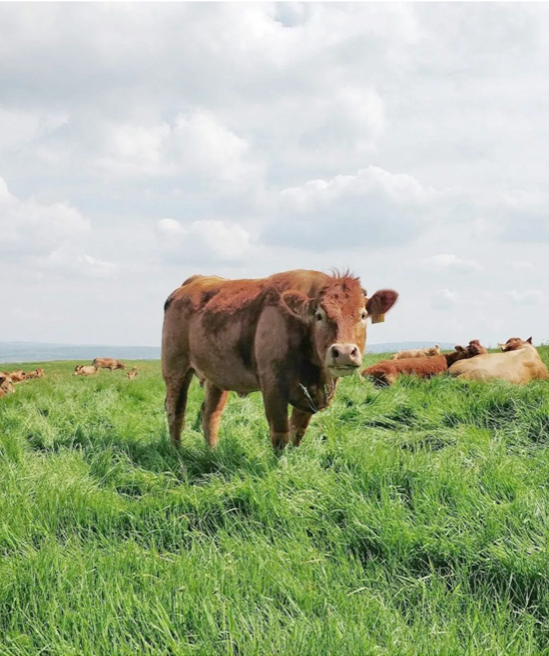

We develop and produce
Low-carbon, renewable natural gas (RNG)
This is achieved through the conversion of agricultural waste—such as manure, beefcake, blood and other byproducts associated with food production.
At first our focus was on buying and converting cattle waste from feedlots and dairy farms. Our sources have since grown to include food processing waste—and we are looking to also convert swine, poultry and other waste streams.
The conversion to RNG is achieved through anaerobic dry-digestion (feedlot) and wet-digestion (dairy and food processors). Using advanced processing and cleanup methods, we convert field biogas into pipeline-spec natural gas. This can then be injected into the nation’s gas pipeline system and is recognized as renewable natural gas (RNG).
Because we understand the pathways and structure of measuring carbon content (known as carbon indexing or CI scoring), we know when, where and how to apply and commercialize RNG. Our knowledge, experience, and partnership support work in:
- Federal Renewable Fuel Standard (RFS) and associated Renewable ID Numbers (RINs)
- State Low Carbon Fuel Standards (LCFS)
- Voluntary decarbonization to meet Environment, Social, and Governance (ESG) goals
